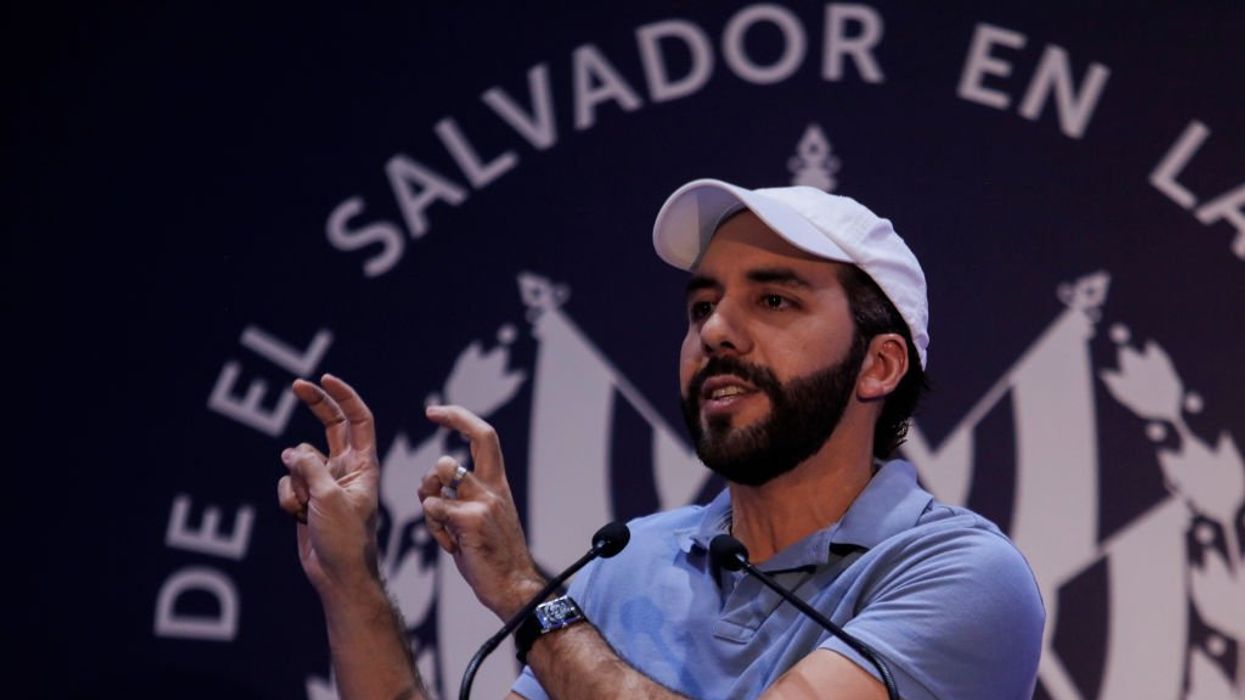
Photo by Alex Peña/Getty Images

The Economist has been ridiculed for suggesting the only approach to violent crime that has worked in recent years isn't worth attempting elsewhere.
The Economist claims to "produce journalism of sometimes radical opinion with a reverence for facts." Judging from a recent Economist article concerning Latin America's problems with crime, it appears the London-based publication might be short on reverence.
A May 8 article entitled "How to pacify the world's most violent region" kicks off with a note on crime in Durán, Ecuador, where the murder rate last year was 148 per 100,000 residents. The article suggests that Durán is the "worst example of a scourge that has brought misery to Latin America. Despite being home to just 8% of the world's population, the region accounts for a third of its murders."
The anonymous author suggested that to remedy such nightmarish states of play, Latin American leaders might reflexively resort to "mano dura, the iron fist."
'Officials from across the region praise and seek to copy what they call the "Bukele model." They shouldnt.'
While admitting that this tough-on-crime approach has recently worked, the Economist author concluded that the crime-fighting approach that transformed El Salvador from a gang-ravaged and blood-soaked battlefield into a nation with fewer murders nationally than Chicago experiences in a year is not worth attempting.
"Officials from across the region praise and seek to copy what they call the 'Bukele model.' They shouldn't," wrote the anonymous author.
The article has been slapped with a Community Notes fact-check on X and ridiculed by Bukele himself.
Salvadoran President Nayib Bukele, 42, was re-elected president earlier this year with over 83% of the vote. His party also swept the National Assembly, securing 58 out of 60 seats.
A large part of what has made Bukele so beloved and popular amongst Salvadorans is his approach to crime. Bukele regards violent crime as a cancer and gangs as "metastases" in need of excision.
Blaze News previously reported that there were 51 homicides per 100,000 in 2018, the year prior to Bukele's election. Under his leadership, the homicide rate had fallen to 7.8 by 2022 such that the country saw fewer homicides that year (495) than were reported in Chicago during the same time period (695).
According to Reuters, Salvadoran security authorities observed the number of homicides drop again in 2023, this time by 70%, leaving the nation with a murder rate of 2.4 per every 100,000, bested only by Canada. America's mortality rate, by way of comparison, is 8 per 100,000.
In order to bring about this end, Bukele's administration took extreme measures, admittedly cracking down on some civil rights and throwing over 1% of the adult population into jail. The anti-crime measures have largely angered foreign leftists such as Rep. Ilhan Omar (D-Minn.) and liberal publications, including the Economist.
The anonymous Economist author stated as a fact that the Bukele model "undermines justice systems and leads to authoritarianism" then concluded it "will not work elsewhere."
The author reasoned that the Bukele-style crackdown worked in El Salvador but would alternatively fail in Mexico or Ecuador because of the caliber of the gangs, which have included MS-13.
The Economist did not go so far as to suggest criminal groups in other Latin American countries are impervious to bullets. Instead, it suggested they are "much richer and better armed and can often draw on help from foreign criminal affiliates. ... Such groups are unlikely to be defeated through force alone."
Instead of throwing violent criminals in prison or the ground, the Economist recommended the legalization of cocaine production and consumption. Recognizing, however, that is unlikely to happen, the anonymous author suggested that governments spare the gangs and bosses and instead "aim to discourage their most violent members from brutal acts."
In addition to creating government incentives for murderers not to keep murdering — citing Mexico as an exemplar — the Economist recommended leaning on police action contra military action; avoid mass incarceration; and keeping kids in school.
When shared to X, the article was swiftly tagged with a community note linking to a Reuters article that highlights the precipitous drop in crime under the Bukele model.
Bukele responded to the article, which was captioned, "Gangs are gaining ground in Latin America. This is why iron-fist policies won't beat them back," with "We just did."
In addition to sharing the article, Bukele noted in a follow up, "There was a 70% drop in 2023… However, since the approval of the Exception Regime, there has been a 86% drop, and since we entered the government in 2019, the drop has reached 95%. We project a 97% drop for 2024."
Max Keiser, a senior adviser to Bukele and so-called Bitcoin bull, tweeted, "Restoring human rights for 6 1/2 million Salvadorans has virtually eliminated gang violence. El Salvador is now the safest country in the hemisphere. The Economist's blatant and grotesque act of journalistic malpractice here is mind boggling."
Blaze News columnist Auron MacIntyre responded, "The main purpose of the press is to lecture you about the evils of living in a well ordered and prosperous society."
Like Blaze News? Bypass the censors, sign up for our newsletters, and get stories like this direct to your inbox. Sign up here!